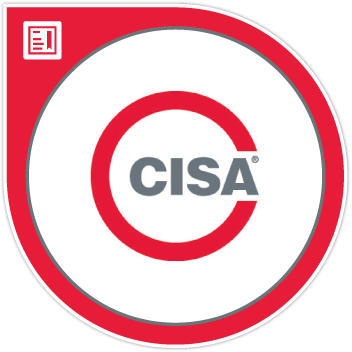
Preparing for the Certified Information Systems Auditor (CISA) exam requires careful planning and dedication. For professionals aspiring to elevate their careers in information systems auditing, understanding the time commitment is crucial.
The number of days needed to complete CISA training varies based on several factors, including prior knowledge, study habits, and available resources. In this blog, we’ll explore what it takes to complete training and how to plan your study schedule effectively.
Understanding CISA
This training encompasses various domains crucial for an information systems auditor. These include:
1. Information System Auditing Process
2. Governance and Management of IT
3. Information Systems Acquisition, Development, and Implementation
4. Information Systems Operations and Business Resilience
5. Protection of Information Assets
Each domain requires thorough understanding and preparation. On average, most candidates spend around three to four months preparing for the CISA exam, but this can vary significantly depending on individual circumstances.
Prior Knowledge and Experience
If you have a background in IT auditing or related fields, you might find the material more familiar and easier to grasp, potentially reducing your study time. Conversely, those new to the field may need more time to understand the concepts thoroughly.
Study Habits and Consistency
Consistent, focused study sessions are more effective than cramming. Establishing a regular study schedule, and dedicating specific hours each day, can help you cover the material more efficiently. On average, committing 2-3 hours daily can set a strong foundation for your training.
Study Resources
Utilizing a variety of study resources such as books, online courses, practice exams, and study groups can enhance your understanding. Some popular resources include the official ISACA study materials and third-party courses. A comprehensive CISA training program can significantly streamline your preparation process.
Creating a Study Plan
Week 1-2: Initial Assessment and Planning
Begin by assessing your current knowledge and identifying areas that need more focus. Create a study plan outlining daily and weekly goals. Ensure to include time for reviewing each domain, taking practice tests, and revisiting challenging topics.
Week 3-6: In-Depth Study of Domains
Dedicate these weeks to studying each domain in detail. Allocate specific days to focus on individual domains and ensure you understand the key concepts, frameworks, and best practices. Utilize training materials, including videos, books, and online resources.
Week 7-8: Practice Exams and Review
Take practice exams to gauge your understanding and identify areas needing improvement. Review incorrect answers to understand your mistakes and reinforce your knowledge. This period is crucial for building confidence and ensuring you’re ready for the exam.
Week 9-12: Intensive Review and Final Preparation
In the final weeks, focus on intensive review sessions. Revisit each domain, emphasize weak areas, and retake practice exams to track your progress. Ensure you are familiar with the exam format and time management strategies.
Balancing Training with Other Commitments
Many CISA candidates juggle their study schedule with full-time jobs and other responsibilities. Here are some tips to balance your training effectively:
1. Set Realistic Goals: Break down your study material into manageable chunks. Setting small, achievable goals helps maintain motivation and progress.
2. Create a Study Schedule: Allocate specific times for study sessions, considering your peak productivity hours. Stick to your schedule to develop a consistent study routine.
3. Utilize Breaks Wisely: Use short breaks during work or commute times to review flashcards, watch training videos, or listen to relevant podcasts.
4. Seek Support: Join study groups or online forums to connect with fellow candidates. Sharing insights and discussing challenging topics can enhance your understanding and keep you motivated.
Integrating CGRC- Certification
If you’re also considering CGRC (Certified in Governance, Risk, and Compliance) certification, it’s essential to plan accordingly. While both certifications are valuable, managing simultaneous preparation requires careful time management.
1. Prioritize: Focus on one certification at a time to avoid overwhelming yourself. Complete your CISA training before diving into CGRC- certification preparation.
2. Leverage Overlapping Content: Some concepts in CISA and certifications overlap, such as risk management and governance. Utilize this to your advantage and reinforce your knowledge across both certifications.
Conclusion
By creating a structured study plan, balancing your commitments, and utilizing a variety of study resources, you can successfully prepare for the CISA exam and advance your career in information systems auditing. Additionally, integrating CGRC Certification can further enhance your expertise and career prospects in governance, risk, and compliance.
Completing training requires dedication, consistent effort, and effective planning. On average, a commitment of three to four months is necessary, but individual factors such as prior knowledge and study habits can influence this timeline.




